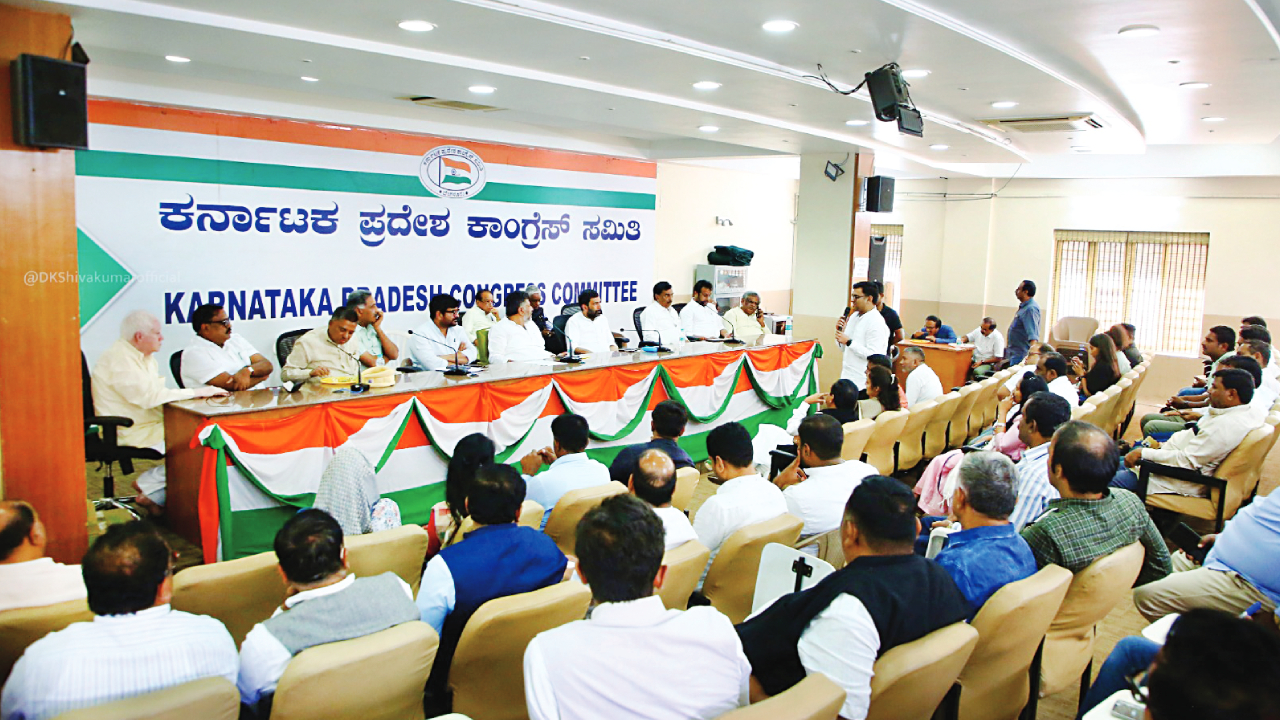About appointments in state-run boards and corporations amidst criticism and reports of internal discord among party ranks.
- May 13, 2024
- Updated 5:49 pm
Key Appointments Next Week – Says Dy Cm Shivkumar
“Randeep Singh Surjewala engaged in thorough discussions, seeking the insights of esteemed senior leaders and legislators. His return is anticipated on November 28. Meanwhile, Chief Minister Siddaramaiah and I are gearing up for election campaigning in Telangana,”
Deputy Chief Minister D K Shivakumar has assured that the government will conclude discussions regarding appointments to various state-run boards and corporations by next week. Following another round of deliberations in the coming days, the eagerly awaited list will make its way to the party high command for the crucial seal of approval, he said. Shivakumar also added that Congress General Secretary Randeep Singh Surjewala has been at the helm of these discussions, engaging with state leadership in Bangalore over the past few days. “He engaged in thorough discussions, seeking the insights of esteemed senior leaders and legislators. His return is anticipated on November 28. Meanwhile, Chief Minister Siddaramaiah and I are gearing up for election campaigning in Telangana,” he told the press recently. The Deputy Chief Minister further indicated that the conclusive list would take shape upon Surjewala’s return after the election campaign and would be promptly dispatched to Delhi.

Opposition criticises delay
This political chess game, however, has not been without its share of controversy. The Opposition, led by the Bharatiya Janata Party (BJP), has been relentless in its criticism. The BJP has accused the government of orchestrating a delayed appointment strategy alleging the Congress of orchestrating a systematic “cash for postings” scheme over the phone. “Surjewala has now come and is holding discussions on the process of auctioning the posts, which was postponed earlier, as dealings could not happen properly,” roughly translated (from Kannada) a post on the party’s official handle in a micro-blogging website. Responding to these claims, Shivakumar asserted that appointments would be made to accommodate both legislators and party workers. “Why did the BJP not address these appointments during their tenure? We are taking steps now, but when did they act? Unwarranted criticisms are being made. They even left four ministerial positions vacant, highlighting their own inability to fulfil essential roles,” he was quoted as saying by the press.
Internal turmoil?
In the midst of these political crossfires, there are indications of internal discord within the state Congress. Reports are rife with accounts of legislators aspiring for pivotal roles in boards and corporations, venting their frustration over the protracted delay. Simultaneously, party workers eagerly await the recognition they believe is due to them. Addressing these concerns and assuring that appointments would be distributed among both Congress legislators and loyal party workers, Shivkumar hinted at accommodating approximately 15 to 20 party MLAs and MLCs, highlighting the need to “recognise loyalty within the party”. Shivakumar also reiterated that appointments would be distributed among both Congress legislators and loyal party workers. The dynamic between Chief Minister Siddaramaiah and Deputy Chief Minister Shivakumar has also come under scrutiny, with reports hinting at differences of opinion regarding the appointments. Siddaramaiah previously outlined a phased approach to appoint[1]ments, prioritizing sitting MLAs and MLCs before extending the consideration to party workers and former legislators. Brushing all these reports off, terming them mere rumours, the Deputy Chief Minister also addressed reports of Home Minister G Parameshwara’s displeasure over the exclusion of his supporters in the list of post-probables.
Dismissing them as “unnecessary speculation,” he highlighted unity within the party. “All are one in the party, and everyone is a Congress supporter,” he affirmed. The next week’s discussions promise to unfold a narrative that would be a decisive chapter in the state’s governance, shaping the trajectory of key roles within the administration.

